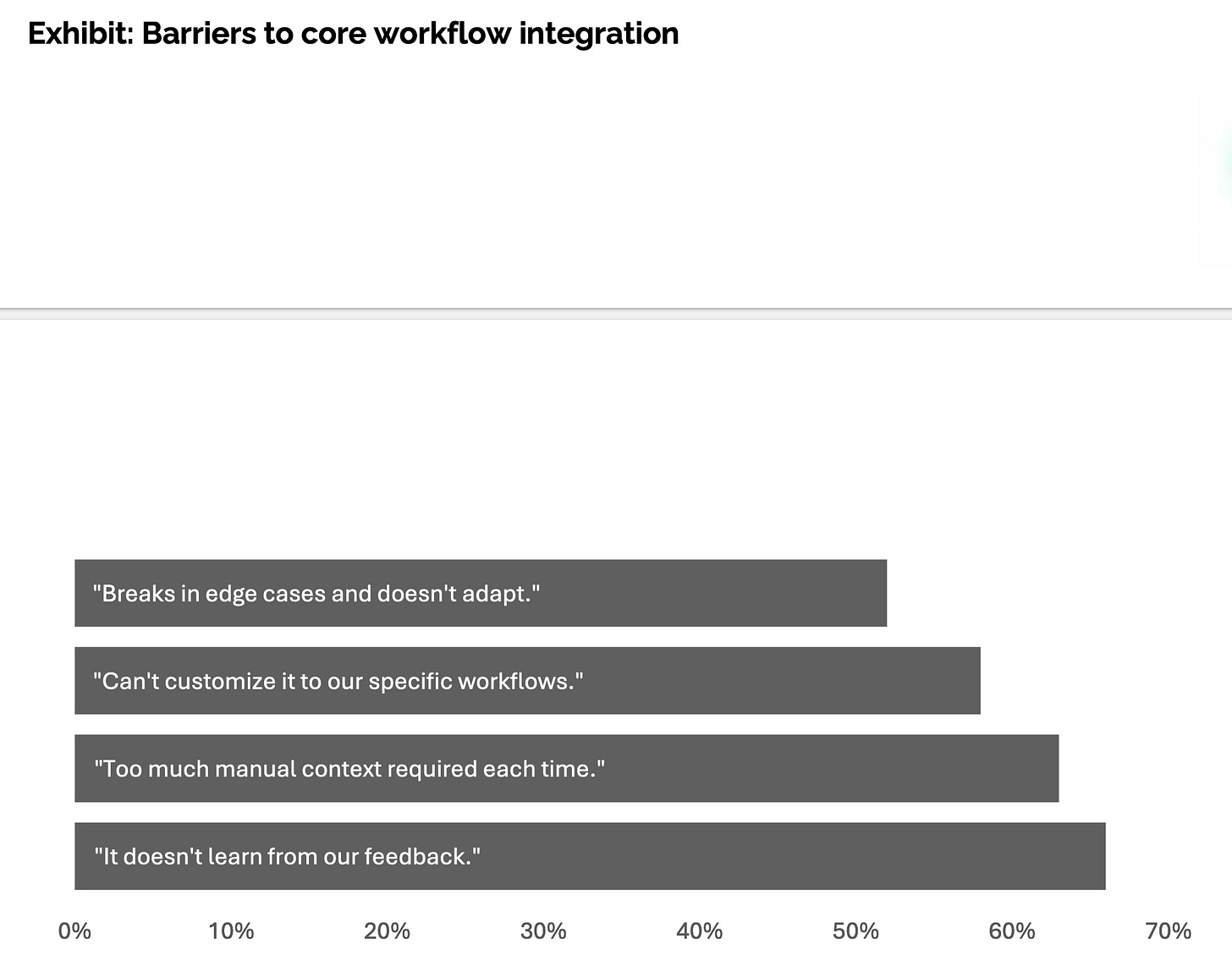95% of organizations are getting Zero return on GenAI
Recently I read an astonishing paper from MIT NANDA that corroborates a lot of the patterns I’ve been seeing over the last few months regarding AI implementation . “Despite $30–40 billion in enterprise investment into GenAI, this report uncovers a surprising result in that 95% of organizations are getting zero return”. What the authors discuss is that this is rather related to the approach towards AI than the model quality itself.
Equally surprising is the fact that over 80% of organization have explored or piloted AI solutions such as ChatGPT or Cursos, with 40% confirming deployment after experimentation. Even though this translates more to individual performance than a bottom-line impact per se.
The major bottleneck assessed by researchers was related to the limitations of the solutions in terms of adaptation to context, feedback and capacity to learn and improve over time. This is precisely why, managers when asked whether to delegate a task for AI vs an Analyst in their firms will tend to choose AI for simple tasks, while choose Analysts for those that require context and stakeholder engagement - as “they will be losing more time teaching the context over and over for an AI during a large project”.
This paints at the same time quite an interesting more realistic picture of AI adoption and its impact on business, as only 2 out of 8 major sectors assessed have seen meaningful structural changes as a consequence of the new technology, with those being also the more obvious and advertised use cases - named Technology and Media
.
Also worth mentioning that one of the factors attributed to this low impact, relates to the fact that most capital has been allocated to Sales & Marketing Processes, while the study shows far better results in back-office automations. On top of this is quite interesting to see how AI might be delivering value for professional’s productivity in what they call “Shadow AI economy”, where instead of going with fancy AI Corporate solutions, professionals tend to have their own personal subscription.
In a similar note, we see an even slightly more optimistic view of the impacts of the tools on the job market. “Our analysis reveals that GenAI-driven workforce reductions concentrate in functions historically treated as non-core business activities: customer support operations, administrative processing, and standardized development tasks. These roles exhibited vulnerability prior to AI implementation due to their outsourced status and process standardization.”
Apart from all of the previously mentioned my key takeaways on the study are precisely :
A guidance on how to properly setup AI experimentations, accounting and addressing its limitations
A more realistic view of the long-term impact in the Job market
A clear perspective on how the companies implementing these tools and their providers can bridge the gap to ensure that we can actually materialize the hype in P&L impact.




Regarding the topic of the article, this resonates so much. The "losing more time teaching context" point is spot on, and a relatable pain. You mentioned only 2 sectors saw meaningful change. Where those the usual suspects, or where there some unexpected ones? Great read, and a suprise for sure.